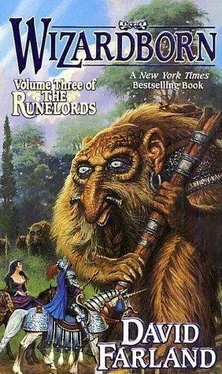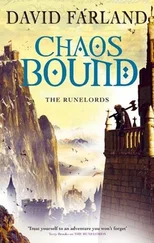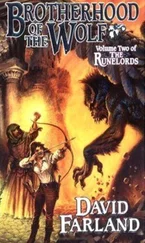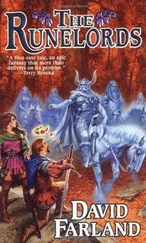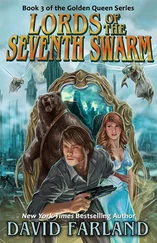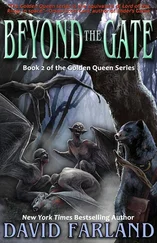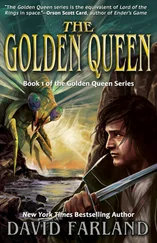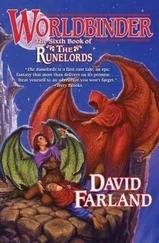David Farland - Wizardborn
Здесь есть возможность читать онлайн «David Farland - Wizardborn» весь текст электронной книги совершенно бесплатно (целиком полную версию без сокращений). В некоторых случаях можно слушать аудио, скачать через торрент в формате fb2 и присутствует краткое содержание. Жанр: Фэнтези, на английском языке. Описание произведения, (предисловие) а так же отзывы посетителей доступны на портале библиотеки ЛибКат.
- Название:Wizardborn
- Автор:
- Жанр:
- Год:неизвестен
- ISBN:нет данных
- Рейтинг книги:5 / 5. Голосов: 1
-
Избранное:Добавить в избранное
- Отзывы:
-
Ваша оценка:
- 100
- 1
- 2
- 3
- 4
- 5
Wizardborn: краткое содержание, описание и аннотация
Предлагаем к чтению аннотацию, описание, краткое содержание или предисловие (зависит от того, что написал сам автор книги «Wizardborn»). Если вы не нашли необходимую информацию о книге — напишите в комментариях, мы постараемся отыскать её.
Wizardborn — читать онлайн бесплатно полную книгу (весь текст) целиком
Ниже представлен текст книги, разбитый по страницам. Система сохранения места последней прочитанной страницы, позволяет с удобством читать онлайн бесплатно книгу «Wizardborn», без необходимости каждый раз заново искать на чём Вы остановились. Поставьте закладку, и сможете в любой момент перейти на страницу, на которой закончили чтение.
Интервал:
Закладка:
Binnesman hugged her close, offering comfort. Gaborn could give her none. He couldn’t let her back down from her duty.
“My men have searched most of this pile in the past two hours,” Gaborn urged. “We’ve found no other match.”
Averan swallowed hard. Gaborn was only asking her to grow up. That would happen whether she wanted to or not. “I’ll eat.”
As soon as she agreed, relief overwhelmed her. She’d only have to do it this one more time.
Gaborn let out a heavy sigh, knelt down, and put his arms around her. “Thank you,” he said.
Gaborn felt exhausted—not just physically exhausted, but mentally and emotionally drained in a way he’d never felt in his life.
“Get her what she needs,” he told the scout. The reaver’s sweet triangle was exposed enough so that a man ought to be able to get some of its brains out.
He patted Binnesman on the shoulder, and whispered, “Stay with her. Give her what comfort you can. I need some rest.”
He went to his horse, rode his mount north for a mile along the cliff face. His Days followed, until they reached the fallen statue of Mangan.
The warrior had broken into a dozen chunks when he fell. Gaborn dismounted, scaled the side of Mangan’s pitted head, and just sat with his hand against the rock, feeling a sort of reverence.
Little was known about Mangan—a few sayings, this statue. Over a thousand years ago he had built a fortress here. He had stopped the warriors of Muttaya from overwhelming western Mystarria. He’d built his castle and withstood enemy forces in a dozen fierce battles. He died young in some ignoble skirmish, and fifty years later his son had artisans carve the cliff face in his honor. Now the weathered stone felt rough under Gaborn’s hand. The lichens grew thick.
Gaborn gazed up as a star streaked across the horizon. He’d seen a hundred in the past three hours.
Gaborn sat wondering. Things were changing, he realized. He sensed the rising danger to the wounded of Carris, who were floating down the river Donnestgree, along with some of his warriors.
He was becoming more adept at discerning such things. Sometimes, he could sense the danger well in advance. Other times, it seemed to flare up suddenly. It was like trying to stare into a pot of boiling water and decide which of the bubbles forming inside the cauldron would rise next. It seemed an inexact science, and Gaborn suspected that it had to do with agency, with the choices that he and his enemies made.
Out of nowhere, he could sense great jeopardy to Borenson and Myrrima. He desperately tried to warn them to hide, but could not reach them. He wondered how long this might go on. Would the Earth punish him forever? Would it really let his Chosen die? Or dared he hope that his powers might be restored in his hour of need?
He could not bear the thought that his Chosen might be torn from him. It wasn’t just others’ lives that were lost. In some small way, when one of his Chosen died, a part of him was lost also.
But it isn’t just me, he realized. If a man dies, then perhaps a wife loses a husband and child loses a father. A whole village might feel the blow. Perhaps he was a breadmaker, or someone who could ease another’s pain with a joke—make them feel lighthearted. The loss of one man’s skill weakens his whole community, and in a small way his nation suffers, and his world.
We are all one fabric, humankind. To tear out a single thread unbinds us.
And, oh, how many threads have been torn.
Gaborn felt pangs of loss for his own father, for Iome’s parents, for the hundreds of thousands who had already died, and for the millions that stood now on the threshold of death.
He sighed. “Raj Ahten is near Kartish,” Gaborn quietly informed his Days. “He is fading. He killed more of my Chosen today—a dozen men.”
“You spend a great deal of time worrying about the welfare of your adversary,” the Days pointed out.
Gaborn turned and looked at the skeletal scholar. The man sat on the cold rock, his knees drawn up to his chin, his robe pulled low over his face. Gaborn said, “I would not have any man for my enemy, if I could choose it. Do you know what Raj Ahten faces in Kartish?”
“Time will reveal all things,” the Days answered.
Gaborn said, “I sense a great danger rising. I suspect that Kartish is already destroyed.”
“I can neither confirm nor deny such suspicions,” the Days said.
After a lifetime of living with a Days, Gaborn expected nothing more. Gaborn had tried his best to evince aid from this man, to no avail.
Gaborn had memorized the drawing made by the Emir of Tuulistan. It revealed the Days’ secret teachings from the Room of Dreams in the House of Understanding. As Gaborn studied the scholar before him, the image flashed through his mind.
The Three Domains of Man
The drawing detailed how each man saw himself as the lord of his own realm. It showed how men gauge good and evil based on whether another person enlarges one’s territories or tries to diminish them.
Gaborn struggled inwardly, and suddenly had an insight. It seemed to him that a man could not truly be good in isolation. To develop such virtue, he had to recognize that he was inextricably tied to his community, to the brotherhood of mankind.
A truly good man, he reasoned, could not live for himself alone. Like some of the mystics in Indhopal who refused to wear clothes or to eat food that others might need, he gave himself in service.
Gaborn keenly felt the need to become that kind of man. Though he was born to be a lord, he wanted to dedicate every waking moment to protecting his people. He wanted to consecrate every thought in their behalf, every deed. Yet...nothing that he did seemed enough.
There was something in the nature of good and evil that he did not yet comprehend, some mystery that still eluded him.
He blinked his eyes. They felt gritty, overused. The Days merely sat on the rock.
Why? If the Days understood the nature of good and evil, why did they not act?
Was the Days even human anymore? Had he no compassion? Suddenly connections seemed to weave together through Gaborn’s mind, like lightning weaving across the clouds. He considered the diagram. Everything about it seemed to converge. He felt as if he were on the verge of revelation.
“Time!” he whispered in triumph. Perhaps the diagram wasn’t about good and evil at all. Perhaps it was about Time.
The Days claimed to be servants to the Time Lords. Yet, who had ever seen a Time Lord? They were only legends, personifications of a force of nature.
Now he saw something more clearly. The Days’ teachings said that when a man seeks to take your money, or your wife, or your place in the community, you think him evil. But if he enlarges your stature, if he gives you praise or wealth or gives of his time, you think him good.
But a thought struck Gaborn: what do I have that Time won’t take from me? My wife, my father, my family? My wealth, my life? All that I am, Time will steal from me. I have nothing!
Obviously, the Days recognized this. But something about the recognition ate at Gaborn. One could deduce by this argument that Time was the ultimate evil, for it would surely strip a man of all pride and pretentiousness.
Gaborn wondered about his Days. He could not expect one of them to elaborate on his observation, or even to verify his suspicions. The order that they belonged to required them to remain aloof from the lords, to watch only, and never to influence the course of events that Time decreed.
So they merely watched events unfold. But to what end? Why would they give themselves in service to Time if it was the ultimate villain?
He had to be missing something.
If it was true that Time strips a man of everything that he thinks he owns, Gaborn wondered, then perhaps the Days see ownership as an illusion? Perhaps they believe that good and evil are mere phantasms?
Читать дальшеИнтервал:
Закладка:
Похожие книги на «Wizardborn»
Представляем Вашему вниманию похожие книги на «Wizardborn» списком для выбора. Мы отобрали схожую по названию и смыслу литературу в надежде предоставить читателям больше вариантов отыскать новые, интересные, ещё непрочитанные произведения.
Обсуждение, отзывы о книге «Wizardborn» и просто собственные мнения читателей. Оставьте ваши комментарии, напишите, что Вы думаете о произведении, его смысле или главных героях. Укажите что конкретно понравилось, а что нет, и почему Вы так считаете.
